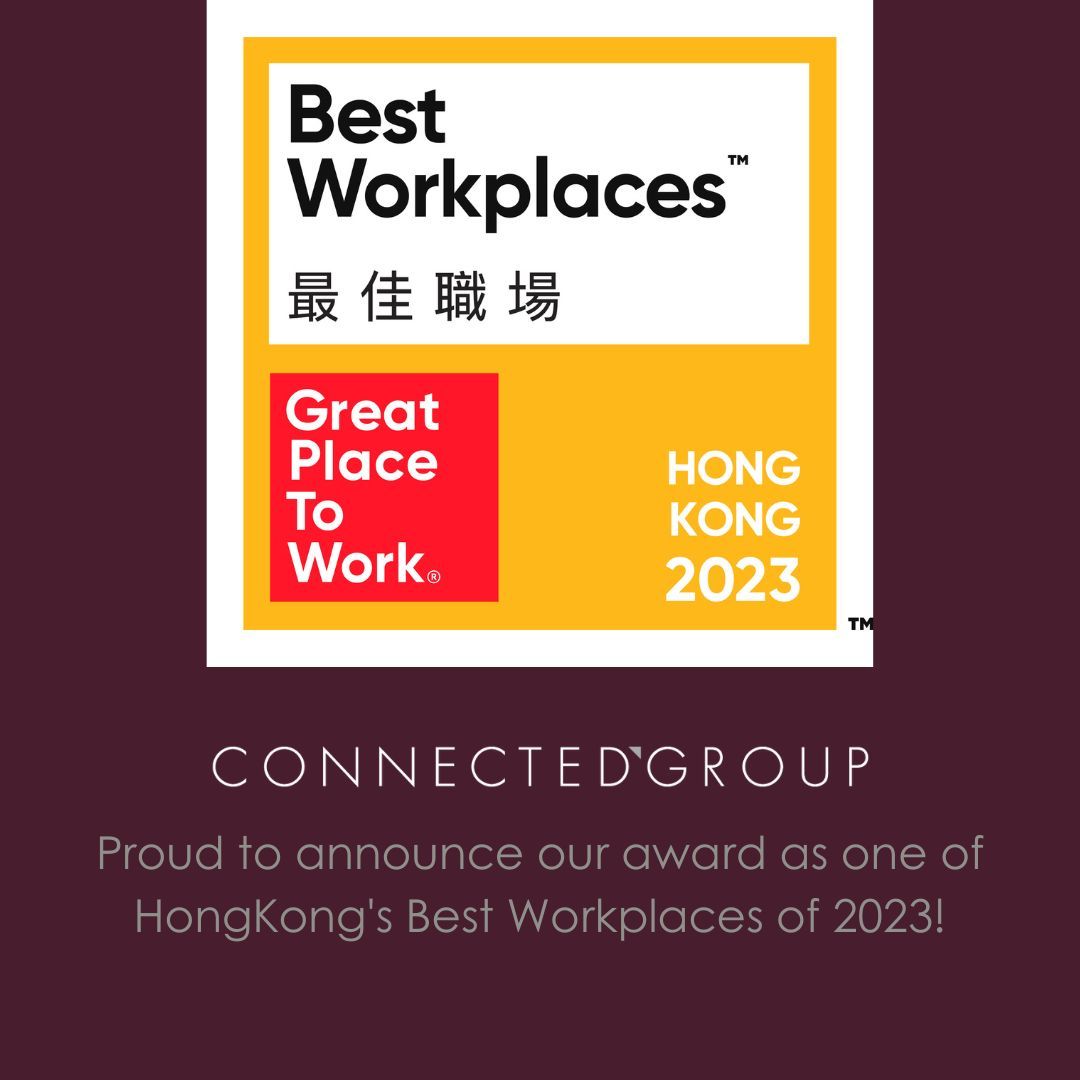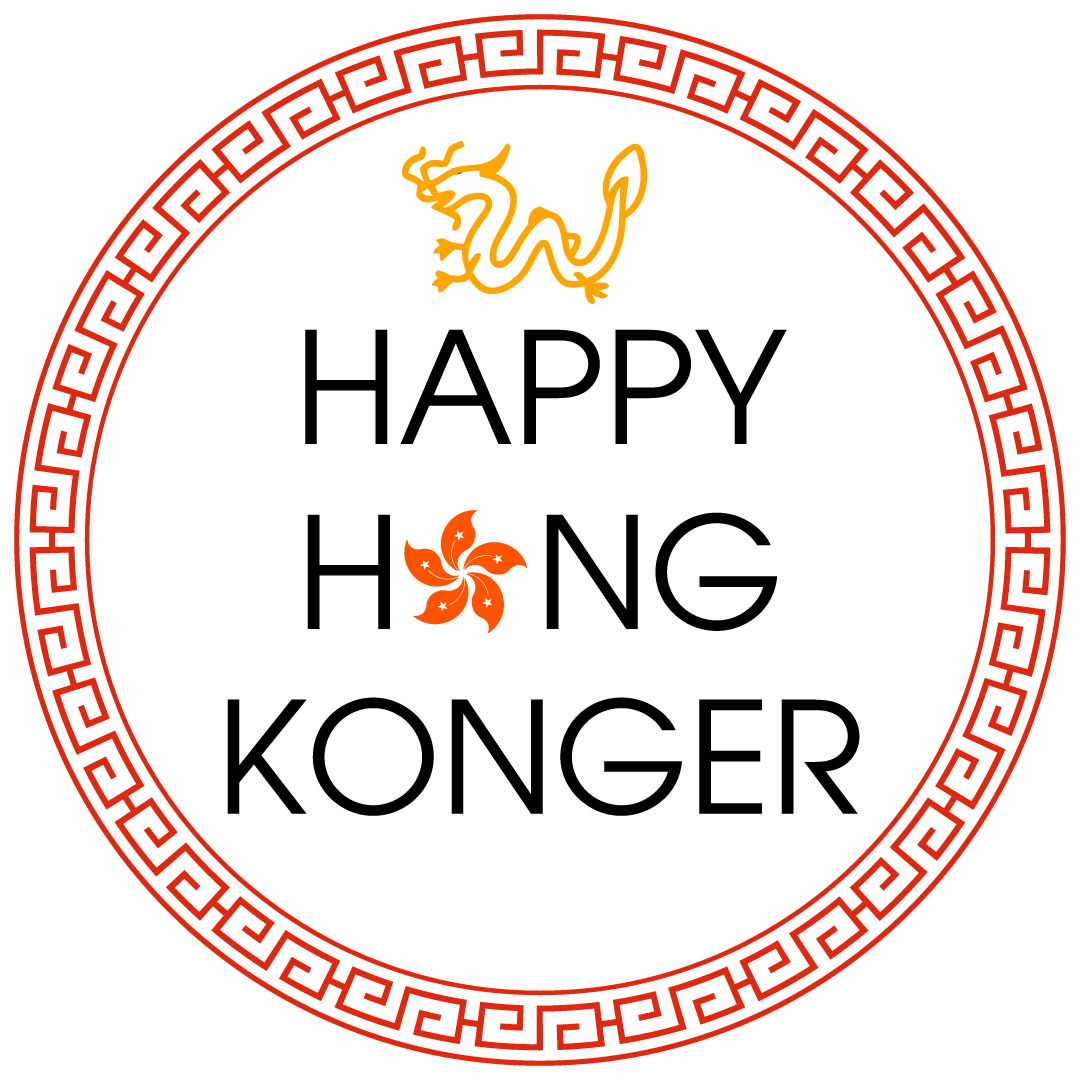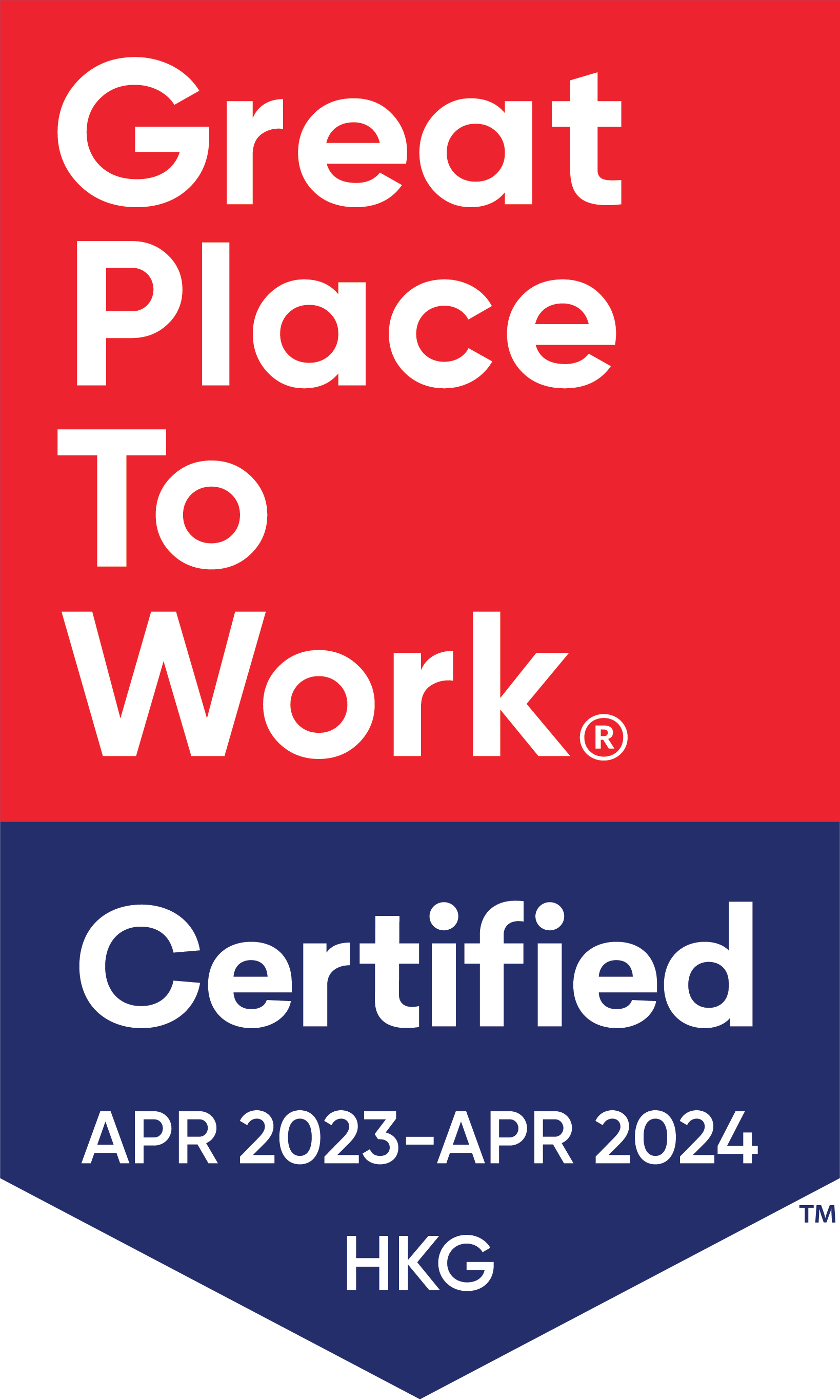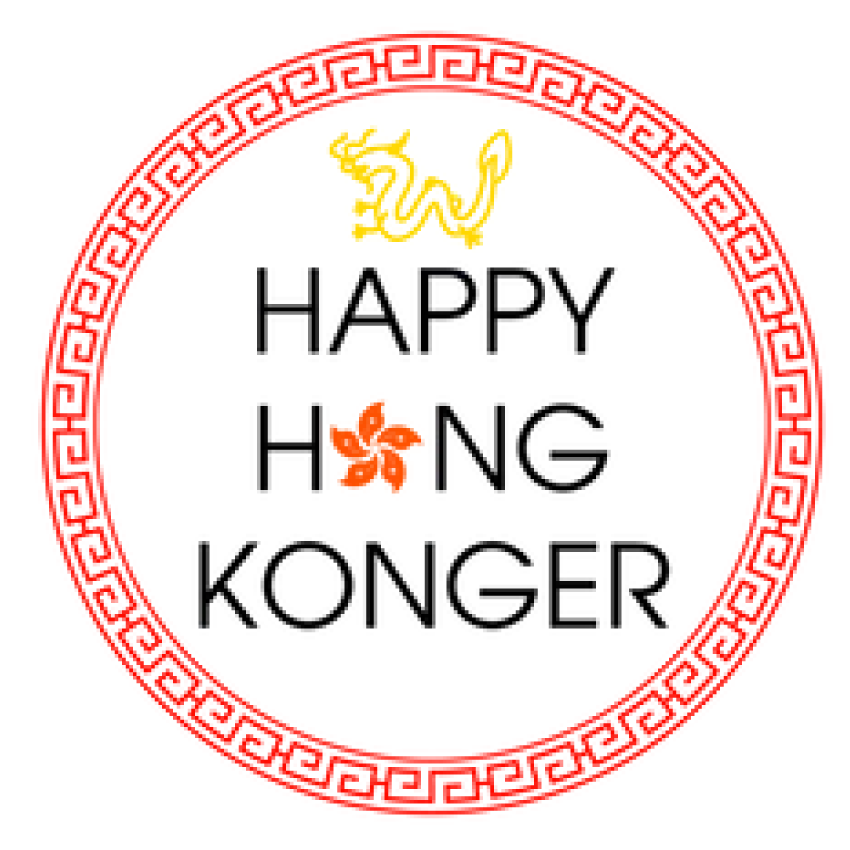ConnectedGroup recognised in the 2024 Best Workplaces in Asia list

Hong Kong, August 29, 2024 – Great Place To Work®, the global authority on workplace culture, has selected ConnectedGroup for the 2024 Best Workplaces in Asia™ List.
This year’s list features 200 organizations that were chosen after surveying over 2.7 million employees in Asia and the Middle East about their experience in the workplace. In total, the survey results represent the work experiences of over 6.9 million employees across the region.
Companies were considered for the list after being selected for local honors on national Best Workplaces™ Lists (ConnectedGroup was selected for the Best WorkplacesTM in Hong Kong 2024 & Best Workplaces in Greater China 2024).
This recognition is based on confidential survey data assessing employee experiences of trust, innovation, company values, and leadership. Companies are also evaluated on how well they are creating a For AllTM workplace experience, where all employees are welcomed and celebrated no matter who they are or what they do.
Companies on the list in 2024 have higher numbers of employees who report a positive experience at work compared to the typical workplace in Asia. When companies build high levels of trust with employees, they are more likely to be prepared for disruption
At the Best Workplaces, 89% of employees report that their company celebrates people who try new ways of doing things — 27 points higher than the 62% of employees who said the same at typical workplaces in Asia.
When employees say their company celebrates people who try new things, they are 69% more likely to adapt quickly to change and 18% more likely to give extra effort on the job.
“Congratulations to the Best Workplaces in Asia,” says Michael C. Bush, CEO of Great Place To Work. “These companies prove that investing in people can lead to better outcomes for business and better outcomes for the planet.”
The Best Workplaces in Asia List is published
here.
About ConnectedGroup
Established in 1997 In Hong Kong, ConnectedGroup is a regional executive recruitment, search, and talent consultancy with broad coverage across a range of functional and industry specialisms.
Our core services include; Retained Executive Search, Exclusive Contingent Search, Contingent Recruitment, Contract Staffing, Interim Management, Payroll Services and HR/Wellbeing Consultancy. This holistic approach to talent advisory enables an end-to-end view of the key issues and challenges that our clients face and how we can help resolve them.
Our strategy is to continue to develop our offering as a 'big boutique' where we combine high levels of engagement and accountability with a comprehensive scope of delivery capability. Our vision is to ‘use recruitment as a lever to improve lives', supported by a mission of 'raising the recruitment industry standard by consistently delivering on our ’ConnectedPledge'. We recruit and measure our employees against the values of being Candid, Creative, Connected and Caring which influences our open and transparent culture whilst encouraging new ideas and focuses us on internal communications that leverage greater benefits for our clients.
Beyond our mission and values, we have developed a strong social purpose of 'amplifying goodwill through the connection of talent with great causes' which has led us beyond just considering our professional impact, to focusing on how we can positively influence our communities. We are the founder of www.recruit4good.com - a not-for-profit initiative that aims to provide a job board and career portal at zero cost to the charitable sector.
About the 2024 Best Workplaces in Asia List
Great Place To Work selected the 2024 Best Workplaces in Asia List by analyzing companies’ workplace programs and surveying over 2.7 million employees across multiple countries in Asia and the Middle East. The responses represent the experience of nearly 6.9 million employees across the region.
To be considered, companies must first be identified as outstanding in their local region by appearing on one or more of our Best Workplaces™ Lists in Bahrain, Greater China (including China, Hong Kong, and Taiwan), India, Indonesia, Japan, Kuwait, Oman, Philippines, Qatar, Saudi Arabia, Singapore, South Korea, Sri Lanka, UAE, or Vietnam during 2023 or early 2024.
Companies rank in three size categories: small and medium (50–499 employees), large (500+ employees), and multinational. Multinational organizations are also assessed on their efforts to create great workplaces across multiple countries in the region. Multinationals must appear on at least two national lists in Asia and the Middle East and have at least 1,000 employees worldwide with either 40% of its total workforce, or more than 5,000 employees located outside their headquarters country.
About Great Place To Work
As the global authority on workplace culture, Great Place To Work brings 30 years of groundbreaking research and data to help every workplace become a great place to work for all. Their proprietary platform and For All Model help companies evaluate the experience of every employee, with exemplary workplaces becoming Great Place To Work Certified™ or receiving recognition on a coveted Best Workplaces List.
Media enquiries:
Mathew Gollop
Managing Director
ConnectedGroup
+852 3972 5874
mat@connectedgroup.com
Recent Articles











We look forward to connecting with you
Location
ConnectedGroup Ltd
Unit 2708, Level 27, Wing On Centre
111 Connaught Road, Central
Sheung Wan, Hong Kong
Specialisations
Quick Links
Sitemap |
Privacy Policy | Terms & Conditions |
Candidate Service Agreement | EA license number 75933 as provided by the Labour Department





